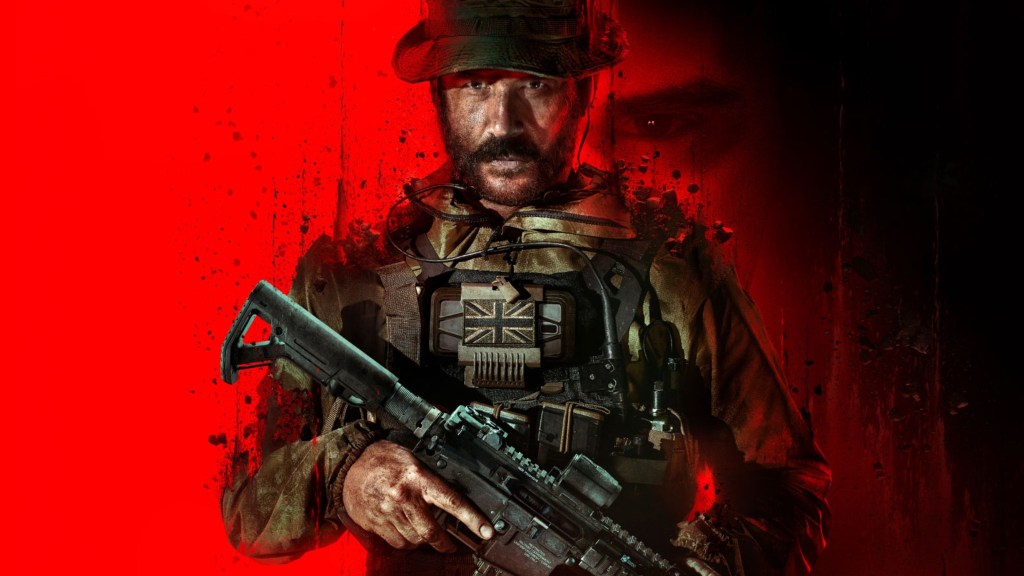Steven Spielberg, one of the greatest filmmakers of all-time, is partially responsible for the existence of Call of Duty, one of the biggest entertainment franchises in history. Last week, it was reported that Steven Spielberg pitched Activision on a Call of Duty. Unfortunately, Activision turned down Spielberg’s pitch due to his demand for creative control and a lofty budget. These requests aren’t exactly shocking for Spielberg. He’s one of the handful of directors who can get butts in seats based on his name alone and is responsible for some of the biggest names, so he has earned that level of freedom. However, Activision is very protective over its brand.
Videos by ComicBook.com
As a result, the Call of Duty movie will land at Paramount and a search for a director is likely to happen soon, if it’s not already. Still, all of this got people wondering: Why would 78-year-old Steven Spielberg, a guy responsible for some of the greatest original blockbusters, want to make a Call of Duty movie? Well, it’s because he’s not only just a fan of Call of Duty, but also one of the reasons why it exists in the first place.
Steven Spielberg’s Role in the Creation of Call of Duty

In 1998, Spielberg released one of his most acclaimed movies: Saving Private Ryan. It’s a shell-shocking World War II movie that is widely regarded as one of the most brutal and authentic war movies ever made. It’s also responsible for depicting the Normandy landings, AKA D-Day, where countless American soldiers poured out of boats onto the beaches of Normandy, France, only to be ruthlessly gunned down by German soldiers that held the high ground. The imagery of that film would go on to be an inspiration for a number of World War II video games, including multiple Call of Duty games and Medal of Honor Frontlines… a game in a series that Spielberg himself created.
Yes, Steven Spielberg is the creator of Medal of Honor, the shooter franchise that ran from the late 90s and early 2010s. During post-production on Saving Private Ryan, Spielberg went into DreamWorks Interactive, a video game studio he helped spin up with the help of Microsoft pre-Xbox, and outlined an idea he had for a war game. He suggested that while Saving Private Ryan‘s authenticity made it educational, they could teach more people about World War II conflicts by having them play through the events themselves. He was also inspired by watching his son play GoldenEye, seeing first-hand the power that a shooter can have.
Spielberg played a big role in developing the game, even pushing to have non-traditional interactive sections, such as the section where the player must present fake ID papers to a guard instead of just blasting him down. It wasn’t just Spielberg’s goal to create a shooter, but to create an immersive and innovative experience about World War II.
Medal of Honor went on to be a great success, as we all know, and the team behind it would be acquired by EA shortly after. Spielberg co-wrote a follow-up known as Medal of Honor: Allied Assault that would be developed by an external studio known as 2015 Games. The game was once again a big hit, but EA decided that it would be developing Medal of Honor games in-house from then on out. So, how does Call of Duty enter into the picture? Medal of Honor was drawing a lot of eyes around the industry, especially from other publishers such as Activision.
Now that 2015 Games was relinquished from Medal of Honor and the team was unhappy with their deal with EA, Activision swooped in to hire key staff, including Vince Zampella and Jason West, to found a new studio known as Infinity Ward. Even legendary composer Michael Giacchino, who scored Medal of Honor, came over to do the music for Call of Duty. Their goal? Make a Medal of Honor killer that was literally codenamed “MOH Killer”. The team aimed to make something that distinguished itself from the Medal of Honor series, creating more nuanced AI and adding mechanics like the ability to actually aim down your sights. Although iron sights were a thing in other games, Call of Duty is credited with popularizing the mechanic.
Of course, Call of Duty was a big hit and spawned a stupidly successful franchise. Steven Spielberg is even a fan of the franchise himself. Max Spielberg, his son who worked on the Medal of Honor franchise, has said that his father loves the series and enjoys the campaigns. In a 2008 interview with Yahoo, Spielberg noted that he was playing Call of Duty 4: Modern Warfare at the time and spoke about his love for the FPS genre. The director was also outspoken about not liking cutscene-driven games, as he felt that no one had found a way to successfully blend the storytelling across both gameplay and cinematics with Battlefield: Bad Company as an example.
“I think Battlefield: Bad Company, which I played through, doesn’t let you escape the interstitial,” said Spielberg at the time. “I do applaud them for trying the storytelling. It’s important to try to invest in these characters you don’t get to see when you’re playing them. You only get to see them during the little movies. But you don’t get to see the faces or recognize the foxhole buddies when you’re just targeting the enemy. Yet I applaud them for at least attempting to tell a story.”
The ripple effect of Steven Spielberg’s time on Medal of Honor didn’t just lead to Call of Duty. It changed the entire future of gaming. Eventually, Vince Zampella and Jason West would leave Infinity Ward after behind-the-scenes drama with Activision. The two would co-found Respawn Entertainment where Titanfall and Apex Legends would be made. The studio would make more than just shooters as well, eventually creating the Star Wars Jedi games that fans love so much.
Zampella is now in charge of the Battlefield franchise alongside ex-Call of Duty exec Byron Beede and they are essential in the positive reception to Battlefield 6. Call of Duty itself has had its own influence on other shooters as well. Ultimately, we’d probably have a very different industry without Steven Spielberg sitting down to watch his son play GoldenEye amidst editing Saving Private Ryan.








